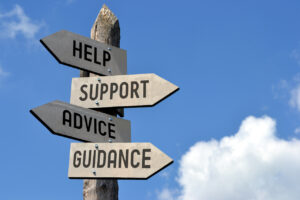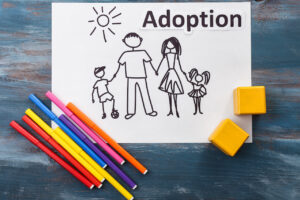What we resist persists – Learn to let it go!

Cheers, dear readers,
I received a lot of great feedback to last week’s post. Thank you for your supportive words, lovely people, and for letting me know that I struck a chord with you! That is awesome! One commenter said “Sometimes raw emotions make the most powerful statements.” I could not agree more. After doing that exercise that I shared last week, it really brought home to me that being really honest with ourselves – which takes a fair amount of bravery sometimes – and facing down our toughest emotions is one of the best ways through the dark forest we sometimes find ourselves in. Even though our first instinct might be to stuff down, ignore or deny our “dark side” or “not nice” thoughts and emotions, all that does is prolong your own suffering. As I’ve mentioned before, “What we resist persists.”
I think it’s important to always remember even in the darkest moments that “this too shall pass.” Time indeed does heal ALOT of wounds – even the ones that leave scars on our hearts and minds. I am living proof that you can get to the other side of your pain and struggles. As one of my heroes says:
“Often it’s the deepest pain which empowers you to grow into your highest self.”
~ Karen Salmansohn
As a complementary post to last week’s sharing and exercise, below are the definitions (from Brené Brown’s glossary of terms to assist with “rumbling with our emotions”) for the list of emotions that I identified and had experienced with my “face down in the arena” moment of infertility.
Glossary of Words (F = Feeling; E = Experience):
ANGER (F, E): A secondary emotion for discharging difficult feelings and discomfort.
BLAME (F): Used to discharge discomfort or pain; related to anger.
DISAPPOINTMENT (F): Unmet expectations. The more significant the expectation, the more significant the disappointment.
EXPECTATIONS (E): Anne Lamott explains that expectations are resentments waiting to happen. An expectation is how we expect something to happen that is often based more on desire than fact.
GRIEF (F): Three fundamental elements of grief are loss, longing and feeling lost. We run from grief because loss scares us, yet our hearts reach toward grief because the broken parts want to mend. Grief seems to create losses within us that reach beyond our awareness—we feel as if we’re missing something that was invisible and unknown to us while we had it, but is now painfully gone.
HEARTBREAK (F): More than just a particularly hard form of disappointment or failure. It hurts in an entirely different way because heartbreak is always connected to love and belonging.
IDENTITY (E): A label or category that uses shared features as the foundation of grouping people together. Identity is important because unwanted identities are the main elicitors of shame. And our identity dictates what messages and expectations fuel our “not enoughness.”
NEED (E): A basic human experience that stems from the fact that we are hard-wired for connection and inextricably bound to each other.
NOSTALGIA (F, E): Formed from two Greek words: nostos, meaning returning home, and algos, meaning pain. Nostalgia is a yearning for the way things used to be or an often idealized version of the past.
RESENTMENT (F): An emotion we experience when we fail to set boundaries, when boundaries are ignored, or when expectations let us down because they were based on things we can’t control, like what other people think, what they feel, or how they’re going to react.
SHAME (F): The intensely painful feeling or experience of believing that we are flawed and therefore unworthy of love and belonging. “I am bad.” “I am a mess.” The focus is on self, not behavior, with the result that we feel alone. Shame is never known to lead us toward positive change.
Wow. Those definitions are POWERFUL … and enlightening. Thank you, Brené! She and her research, work and sharing has helped me so much.
Here are two other definitions that are not only positive but just completely awesome, illuminating and relevant to this conversation about rumbling with our emotions, healing ourselves and getting to a better, more positive place of love and connection to others as well as ourselves:
FORGIVENESS (E): From Joe Reynolds: “In order for forgiveness to happen, something has to die.”
From Archbishop Desmond Tutu: Forgiveness practice includes telling the story, naming the hurt, granting forgiveness, and renewing or releasing the relationship. Tutu writes: To forgive is not just to be altruistic. It is the best form of self-interest. It is also a process that does not exclude hatred and anger. These emotions are all part of being human. You should never hate yourself for hating others who do terrible things: The depth of your love is shown by the extent of your anger.
… to add to the definition of “forgiveness”… one description that I love is that NOT forgiving someone is like “taking poison hoping that the other person will die.” Thus it is self-destructive and only hurts yourself not to forgive. In life, things are inevitably going to happen where we hurt each other accidentally from time to time. Forgiving others (as well as ourselves) is 100% completely necessary to help one live a happy and connected life!
And lastly:
WHOLEHEARTEDNESS (E): Wholehearted living is about engaging in our lives from a place of worthiness. It means cultivating the courage, compassion, and connection to wake up in the morning and think, no matter what gets done and how much is left undone, I am enough. It’s going to bed at night thinking, Yes, I am imperfect and vulnerable and sometimes afraid, but that doesn’t change the truth that I am also brave and worthy of love and belonging.
Infertility struggles definitely can bring up feelings of “I am not enough”, “I am unworthy”, and “I don’t belong.” But it doesn’t have to be that way. You can rise above these thoughts and reconcile with these emotions to get to a better place over time. If I can do it, you certainly can. Feel free to write me and we can discuss how. You are not alone on your journey. We are here to help carry you through the rough spots.
Please join me next week to hear more about my personal journey down the infertility path. I look forward to speaking with you. And I wish you the best on your journey.
Warm regards,
Cathy



